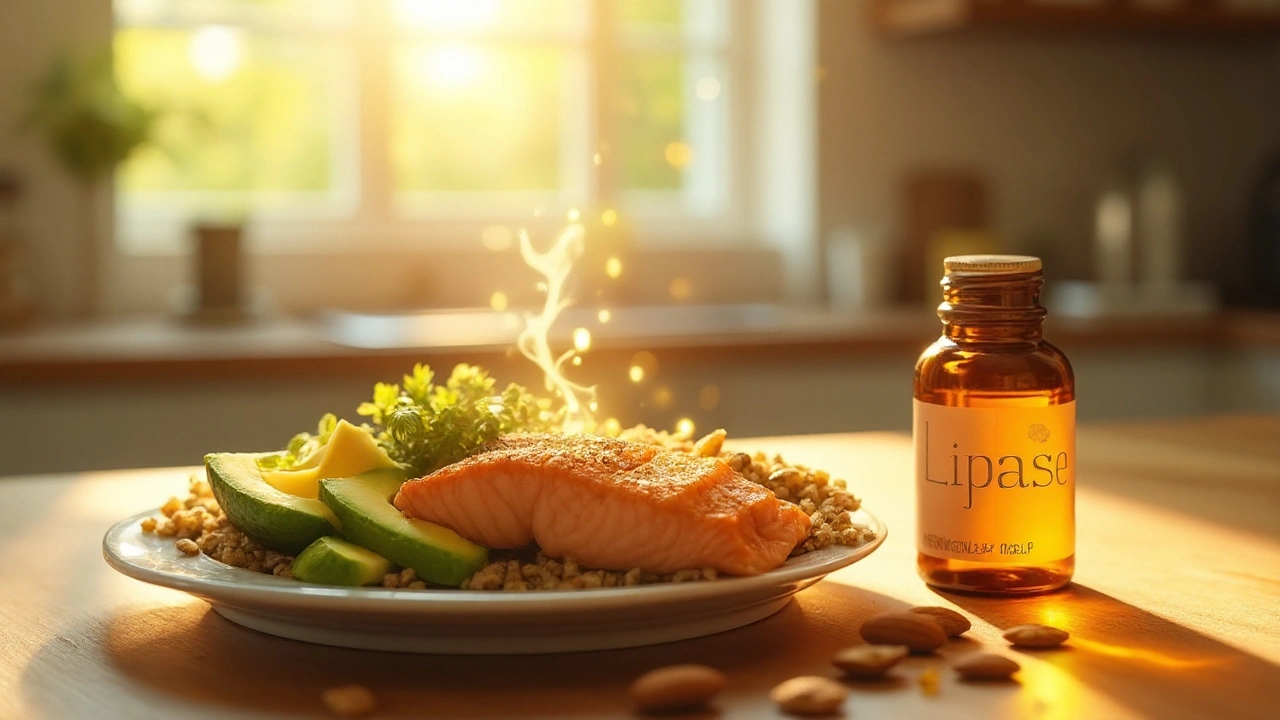Digestive Enzymes: Your Body’s Food‑Breaking Helpers
Ever wonder why a banana feels easy to digest while steak can leave you feeling heavy? The answer lies in digestive enzymes – tiny proteins that crack open carbs, fats, and proteins so your body can absorb the nutrients. When they work right, you feel energetic and comfortable after meals. When they’re low, bloating, gas, and indigestion become regular visitors.
Types of Enzymes and What They Target
There are three main families you’ll hear about:
- Amylases – break down starches and sugars. If you notice sticky crumbs after eating bread, amylase is the hero.
- Proteases – tear up proteins found in meat, beans, and dairy. Low protease can leave you feeling “full” but still hungry for protein.
- Lipases – handle fats. Fatty meals can sit in your stomach longer if lipase levels drop.
Some supplements also contain cellulase for plant fiber and lactase for dairy. Knowing which enzyme you need depends on the foods that give you trouble.
When a Supplement Might Help
Most people produce enough enzymes on their own, but a few situations call for a boost:
- Pancreatic insufficiency – conditions like chronic pancreatitis or cystic fibrosis reduce enzyme output.
- Age‑related decline – older adults often see a slower enzyme release.
- Specific diets – high‑protein or high‑fat meals can overwhelm natural production.
- Lactose intolerance – lactase tablets can make milk tolerable.
If you regularly experience gas, cramping, or loose stools after a particular meal, trying an enzyme supplement with the matching activity (e.g., protease for meat) can be a quick test. Start with the lowest dose and see how you feel.
Remember, supplements are not a cure‑all. They work best when paired with a balanced diet, proper chewing, and regular meals. Drinking water with meals helps enzymes mix evenly, while giant gulping can dilute their effect.
For those on prescription pancreatic enzymes (like Creon or Zenpep), timing is key – take them right at the start of a meal and repeat every 30‑45 minutes for larger plates. This mimics the natural release pattern of the pancreas.
Finally, keep an eye on interactions. Some acid‑reducing drugs (PPIs, H2 blockers) can lower stomach acidity, which in turn can reduce the activity of certain enzymes. If you’re on those meds, talk to a pharmacist about adding a buffered enzyme formula.
Bottom line: digestive enzymes are the unsung workers that let you get the most out of what you eat. Knowing the basics—what they are, why they matter, and when to supplement—gives you a simple tool for smoother digestion and better overall health.

- Aug, 7 2025
- Comments 7